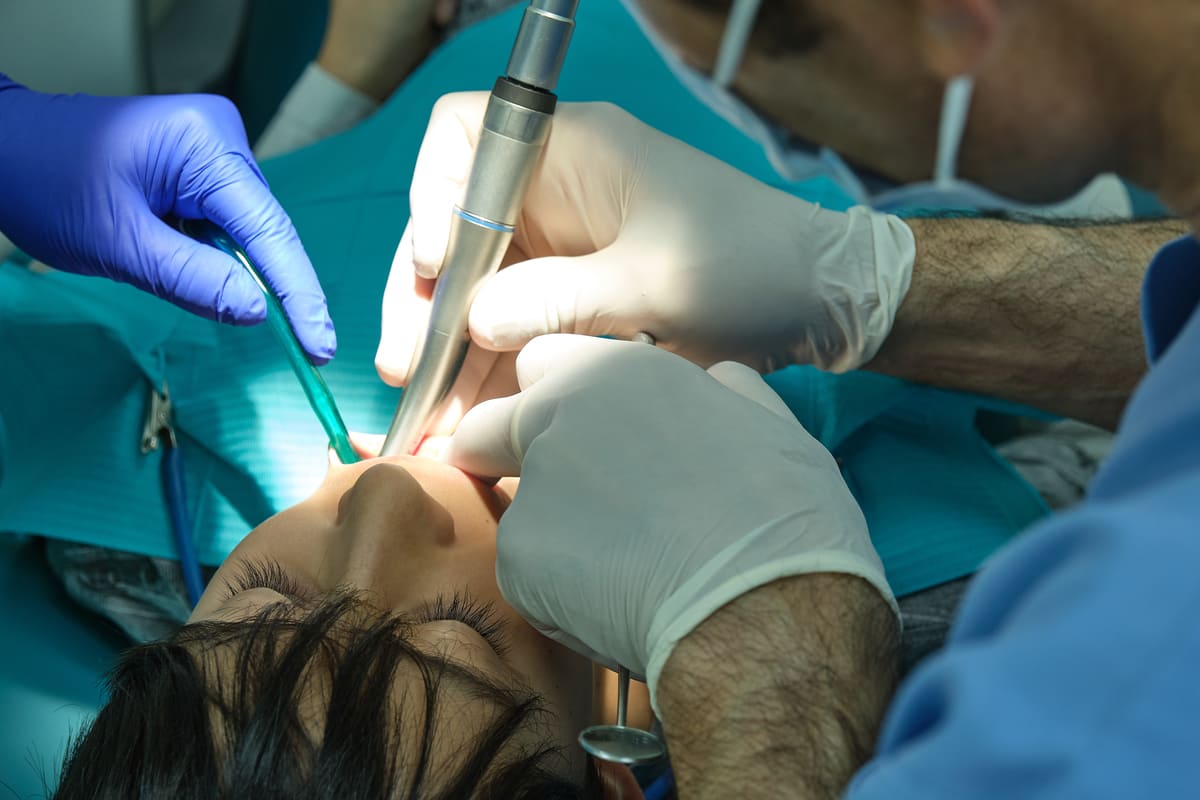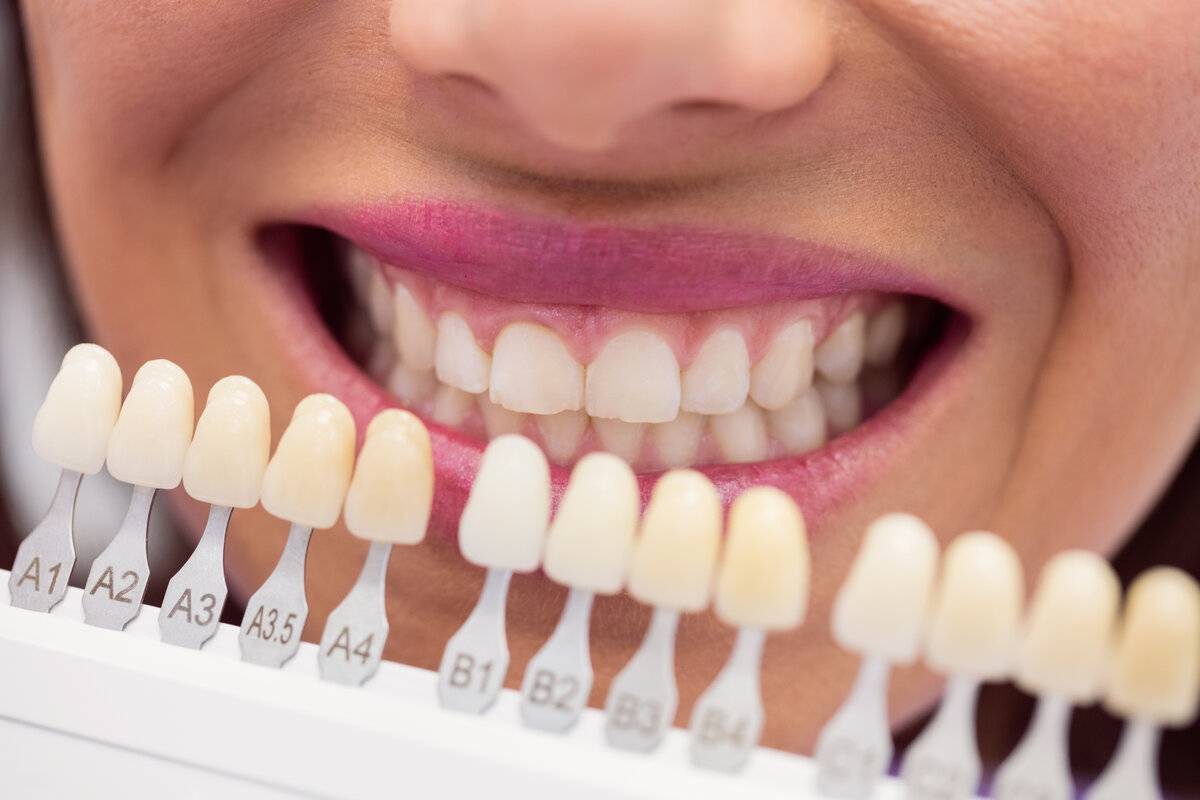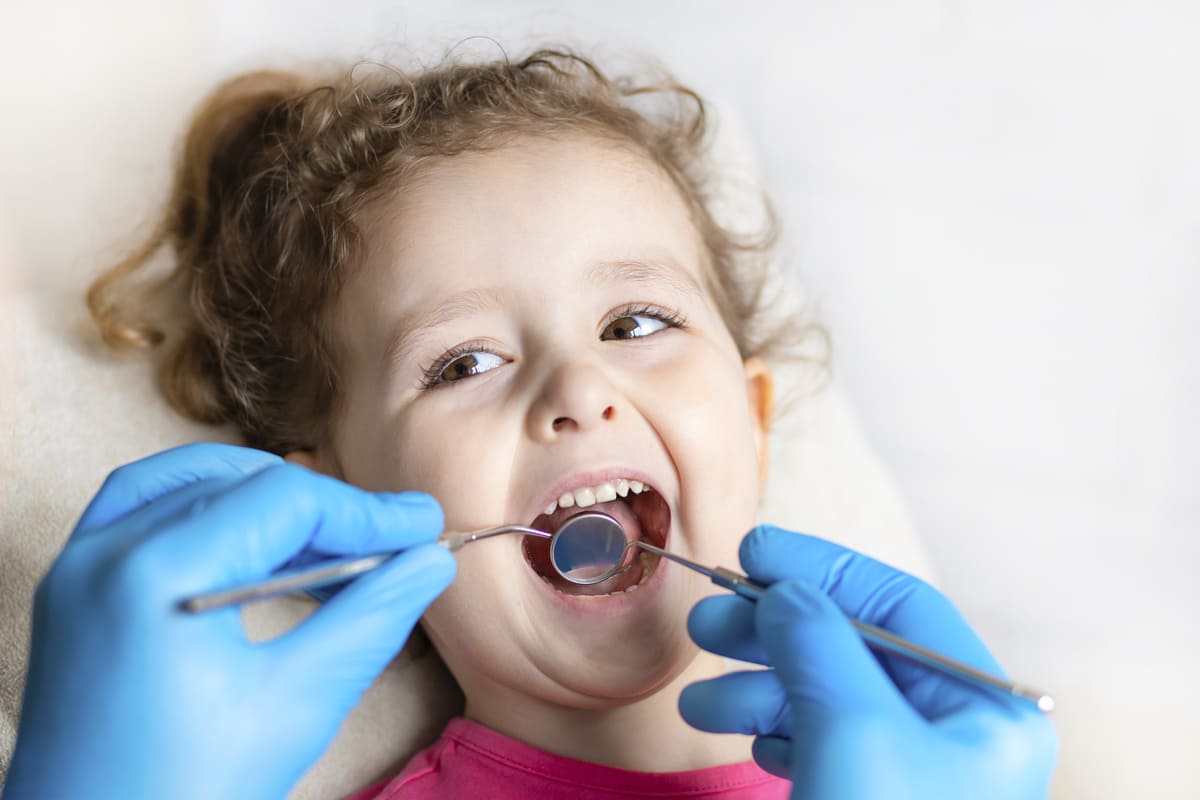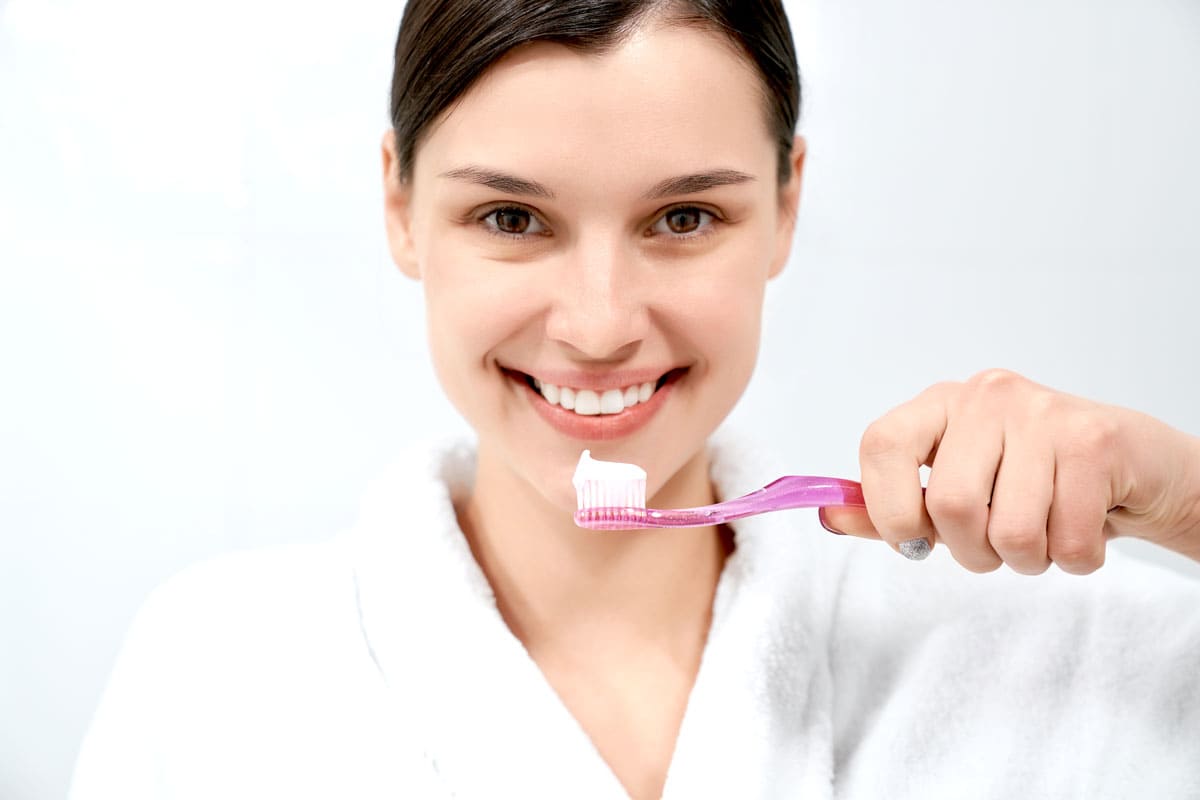Bleeding gums when brushing your teeth can be worrying and very annoying for some people. Although it is a fairly common symptom that we all suffer from at some point, it can also indicate the presence of certain oral health problems. Today at Medident we tell you about the possible causes of bleeding gums during toothbrushing and how you can address this situation.
What is bleeding gums and why does it occur?
Bleeding gums refers to the presence of blood when brushing or flossing your teeth. It manifests itself as blood stains on the toothbrush or noticing blood when spitting during the oral cleaning process.
Healthy gums should be firm, pale pink and should not bleed easily. However, when gums are inflamed or irritated, they can become more sensitive and prone to bleeding.
Common Factors Contributing to Bleeding Gums
Causes of bleeding gums can range from poor oral hygiene habits to medical conditions:
Poor oral hygiene
Poor oral hygiene is one of the main causes of bleeding gums. Bacterial plaque build-up at the gum line can irritate and inflame the tissues, leading to bleeding gums.
Use of hard bristled toothbrushes
Using toothbrushes with hard bristles can damage the gums, especially if too much pressure is applied during brushing. Hard bristles can irritate sensitive gum tissues and cause bleeding gums.
Aggressive brushing technique
Brushing your teeth with rough strokes or excessive pressure can injure the gums and cause them to bleed. It is important to use a soft and gentle brushing technique to avoid damaging gum tissue.
Incorrect flossing
Incorrect flossing, such as flossing roughly between the teeth or applying too much force, damages the gums. It is essential to floss properly, by gently sliding the floss along the interdental spaces without traumatizing the soft tissues.
Periodontal disease
Periodontal disease is a chronic bacterial infection that affects the tissues surrounding and supporting the teeth. Bacterial plaque build-up and the development of periodontal pockets can cause gum inflammation and bleeding.
Nutritional deficiencies
A diet poor in essential nutrients, such as vitamin C, can weaken gums and make them more susceptible to bleeding. Adequate nutrient intake is essential for maintaining optimal oral health.
Tobacco use
Smoking or using tobacco products increases the risk of developing gum disease. Tobacco products contain irritating chemicals that damage tissues, causing inflammation and bleeding.
Hormonal changes
During certain stages of life, such as pregnancy or the menopause, hormonal changes make the gums more susceptible to certain changes and are one of the causes of bleeding and inflammation.
How to identify when bleeding gums require professional attention
If you suffer from persistent pain, excessive bleeding, persistent bad breath, tooth mobility or pus in the gums, contact your dentist immediately. These symptoms may indicate the presence of a more advanced infection or periodontal disease that requires specific treatment.
Don’t ignore these signs and schedule an appointment with your dentist to get the care you need to avoid future complications.
5 tips to prevent bleeding gums while brushing your teeth
When it comes to preventing bleeding gums when brushing your teeth, there are simple but effective measures you can implement into your daily oral care routine. These tips will help you maintain healthy gums and prevent problems such as gingivitis or periodontal disease.
Brush your teeth gently
Remember to brush your teeth with gentle, circular movements, avoiding force. Use a soft-bristled toothbrush to avoid damaging your sensitive gums.
Floss daily
Flossing is essential for removing plaque and food debris that builds up between teeth and along the gum line. Be sure to gently floss in a “C” shape around each tooth, reaching all the way to the gum line.
Use mouthwash
Incorporating an appropriate mouthwash into your daily care routine will help reduce gum inflammation and prevent plaque formation. Look for a rinse that contains ingredients such as cetylpyridinium chloride or fluoride, which help fight bacterial build-up and strengthen tooth enamel.
Avoid acidic foods and drinks
Acidic foods and drinks can weaken tooth enamel and increase gum sensitivity, which contributes to bleeding. Limit consumption of foods such as citrus fruits, soft drinks and processed foods rich in sugars.
Visit the dentist regularly
We are insistent, but regular visits to the dentist are essential to maintain good oral health and prevent problems such as bleeding gums and other more serious diseases. During these visits, dentists perform a complete assessment of your oral health, professional cleanings to remove plaque and tartar build-up and give you personalised recommendations to improve your oral hygiene.
Common treatments for bleeding gums
There are very effective treatments for bleeding gums, but we have already seen the importance of seeing your dentist for an accurate diagnosis and also how important it is to perform small daily habits. However, at Medident we trust in these two treatments as the most effective to prevent bleeding gums:
Professional dental cleaning and its role in the treatment of bleeding gums
Professional teeth cleaning is a key procedure to tackle bleeding gums. During this visit to the dentist, plaque and tartar build-up on the teeth and below the gum line will be removed. This process helps to eliminate the bacteria that cause inflammation and bleeding, as well as prevent the progression of periodontal disease. In addition, dentists will give you personalised recommendations on brushing and flossing techniques to improve daily oral hygiene.
Prescription medications and rinses for the treatment of bleeding gums
In some cases, dentists may prescribe special medications or rinses to treat bleeding gums. These medications may include antibacterial mouthwashes, topical gels or toothpastes with specific properties to reduce inflammation and promote gum healing. It is important to follow the instructions and treatment plan recommended by your dentist to achieve the desired results.
Conclusions
Ultimately, bleeding gums should not be ignored, as they could be a sign of more serious dental problems and require professional attention. By knowing the possible causes and taking preventative measures, such as maintaining good oral hygiene and scheduling regular dental visits, we can reduce the risk of bleeding gums.
If you experience persistent bleeding or have concerns related to your gums, do not hesitate to contact us to schedule a consultation. The Medident team is happy to give you the care and guidance you need to keep your gums and smile in tip-top condition, so don’t wait any longer and take control of your oral health today!









